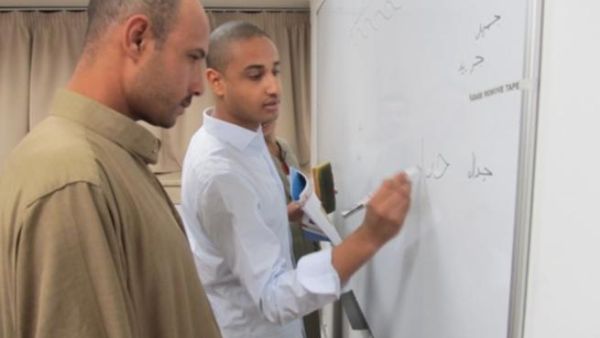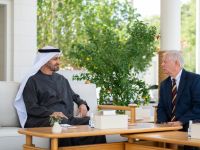AUC students provide literacy classes to EL SAYEDA ZEINAB Residents

Students at the development committee of the Student Union at the American University in Cairo (AUC) initiated Li Masr (For Egypt) project to combat illiteracy in underprivileged Cairo neighborhood, El Sayeda Zeinab. After its students complete their literacy courses, Li Masr will also facilitate microfinance projects for participants to put their new skills to use. “What began with only 20 students has now reached 75,” said Ahmed Ali, general manager of the project. “Our aim is to empower these people to become productive, responsible citizens.”
The students attend classes on Saturdays and Tuesdays, with most classes being held at AUC Tahrir Square and the rest in El Sayeda Zeinab. In addition to learning how to read and write Arabic, participants also understand how to solve mathematical equations. Li Masr signed a cooperative protocol with the General Authority for Adult Education that will allow its students to take literacy exams and receive official certificates of completion. “We have high expectations that they will succeed in passing the General Authority for Adult Education’s literacy exam in June,” said Ali.
AUC students who were involved in the project were motivated by the desire to make a difference in the lives of participants. “I got involved with Li Masr because I believe that teaching the women of El Sayeda Zeinab how to read and write will help them in all aspects of life, especially in making them aware of their personal rights,” said student Pakinam Shibl. “After just a short time, these women started to see the importance of being educated, and they have even gotten their own children involved.”
Shibl added that teaching them to read has been eye-opening for her as well. “The experience has helped me a lot to understand just how important basic education is,” she noted. “The women are really progressing, and they are enthusiastic about learning more and more. One of the ladies actually asked me if classes could meet three times a week instead of two.”
The students in the men's classes showed a similar enthusiasm. “Who doesn't like to learn?” said Ashraf Awwad. “We're here to make progress, to catch up with the times.” Fellow student Mohamed Riad concurred, “I want to able to use the Internet, to read signs in the street and know where I am.”
Li Masr also provides training for its teachers, who are mostly AUC students, but also include students from other universities. The project received educational material, syllabi and training from its partnership with a governmental institution, as well as the Life Makers nongovernmental organization. “This is the first stage of what we hope will one day become a national project,” said Mai Abdel Hafez, chair of the development committee. “Once our students have finished classes and are working on their microfinance projects, we’ll evaluate the project’s model and hopefully expand it by contacting and working with universities in different governorates. What started as a small-scale initiative could have a very macro effect.”
Background Information
American University of Cairo
Founded in 1919, AUC is a leading English-language, American-accredited institution of higher education and center of intellectual, social and cultural life of the Arab world. Its community of students, parents, faculty and staff, trustees, alumni and other generous sponsors represent more than 60 countries. The University stands as a crossroads for the world’s cultures and a vibrant forum for reasoned argument, spirited debate and understanding across the diversity of languages, facilities and human experiences.





